Best Foot Forward: Keep LBC Fit Prints Socks for Change
Gio Ferraro, the founder of nonprofit Keep LBC Fit, strives to address homelessness with a simple but vital tool-printed socks.
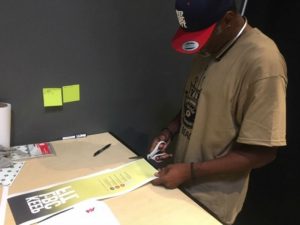
Homelessness is an issue that has an impact virtually everywhere in the country. While it’s prevalent in small towns and rural areas, the crisis of homeless populations is never more prevalent than it is in some of the larger cities in the U.S.
In Long Beach, California, that issue is something Gio Ferraro, founder of nonprofit Keep LBC Fit, strives to address. But up until recently, Ferraro says her group didn’t have as direct of a model as it does now.
“I opened up a small business almost six years ago,” she explains. “I knew I was going to do something to give back to the community.”
Already steeped in homeless advocacy work for roughly 15 years, Ferraro says she thought she would continue in that field by using her gym as a place to help various organizations. Ranging from fundraisers, clothing drives, or give-back programs, she says the main goal was to be an active, driving force of change in the Long Beach community.
Over time, Ferraro says that she realized it made more sense to officially form a nonprofit, particularly if the group was going to continue working in homeless advocacy. One of Keep LBC Fit’s primary products they distributed was a card that listed resources for homeless people. These included organizations like Mental Health America, Christian Outreach in Action, the Long Beach Rescue Mission, Los Angeles Area 2-1-1, and The Multi-Service Center, a facility in the city that offers case management, outreach services, and shelter referrals to homeless individuals in the Long Beach area. The group saw these cards as a simple way to inform the individuals who needed help, but not long into the project, Ferraro says they hit a snag.
She recalls walking down the street, handing out cards, and coming back to the same spot 20 minutes later to often find the card either on the bench or the ground. “And it was just kind of frustrating,” she adds.
Ferraro decided that instead, handing out custom-printed socks would be a better way to not only spread vital information but provide the homeless with an essential piece of apparel. Outsourcing the sock printing, Ferraro said she used a similar model as Tom’s shoes “one-for-one” concept. She sold the socks at the Long Beach gym, and for every pair sold, the group donated a pair.
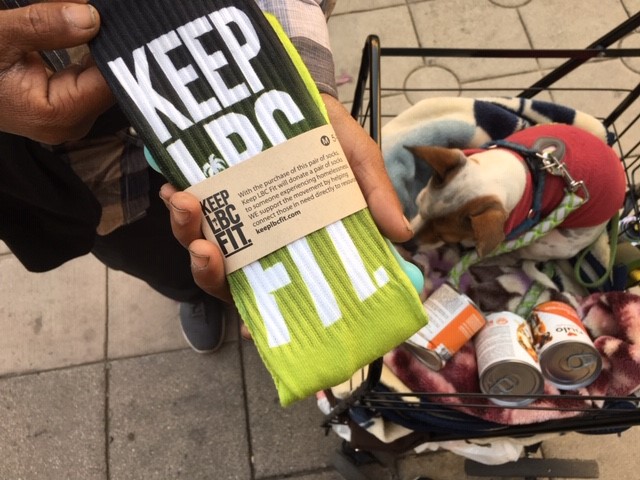
A sample pack of the socks sold at the gym and distributed in the city. (All images courtesy Gio Ferraro)
“But that just didn’t feel like enough for me,” contends Ferraro. “I wondered what it would take to make these socks, what is this process?”
After about a year of research and fundraising, Ferraro purchased a sublimation printer and a heat press and set up shop in a space above the gym. For roughly the last six months, the sock printing, selling, and donation program now operate in-house. In addition to providing donations to the homeless community, Ferraro partners with the city of Long Beach and a workforce program called Pacific Gateway to help those trying to get back on their feet.

The workspace sits in the upstairs of the organization’s gym.
“We coach them, mentor them, and make sure they’re going to various workshops and giving them a part-time paycheck,” says Ferraro.
Since the organization started printing, Ferraro estimates they’ve churned out 500 pairs of socks. For those living on the street, a simple piece of clothing turns into a multipurpose tool, Ferraro says. That ranges from a place to hide a wallet and other valuables, to a washcloth, to a place to carry feminine hygiene products.
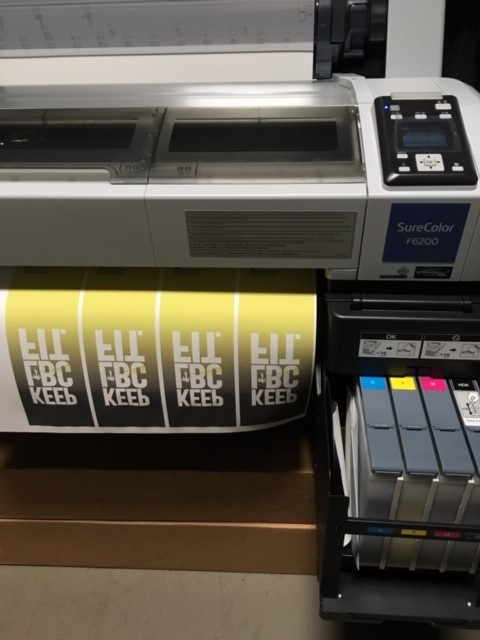
The organization now prints all the socks in-house.
As the program continues to pick up momentum, Ferraro says she wants to grow and streamline the initiative. Eventually, she hopes to offer employees full-time opportunities, bolster coaching and mentoring, and expand the apparel offerings that help spread the organization’s message. Ferraro hopes that in addition to helping the homeless, the socks and proliferation of information help others in the community become cheerleaders for the cause too. By allies and advocates also wearing the socks, she says it helps send a message to the homeless community that there is a subset of the population that wants to help in any way they can.
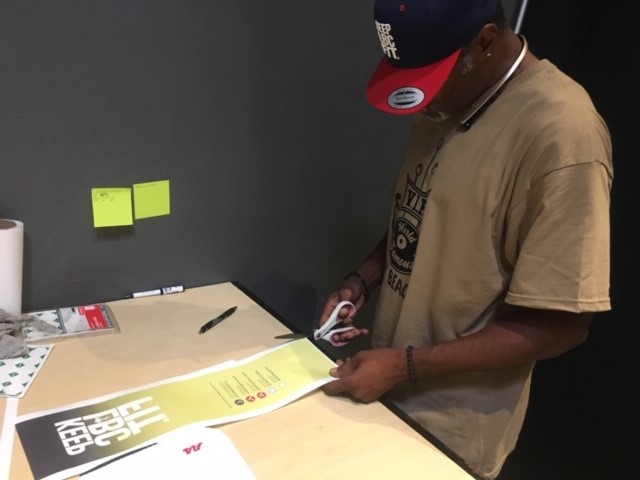
A Keep LBC Fit employee cutting out patterns for sublimated socks.
Ferraro also points back to her own experiences as the reason she is where she is today.
“People have to understand that someone experiencing homelessness has a family and it affects them just as much,” explains Ferraro, referring to her father’s slide into homelessness and eventual death when she was younger. Economic setbacks, she says, initiated his progression downhill, wherein he severed various ties, and his mental and physical health declined.
?”I was the only bridge that (he) didn’t burn because I just was not going to let that happen,” says Ferraro. “Watching your father dwindle down into an 80-pound skeleton and eventually die a homeless man will affect you as a human (and) as a daughter.”
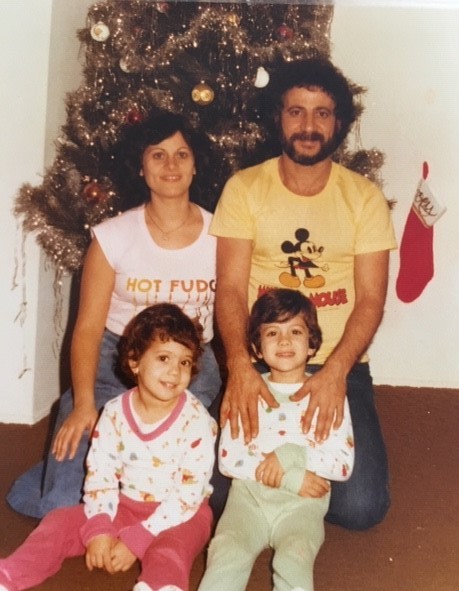
Ferraro as a child with her family.
Since that point, Ferraro says she’s been charged to advocate and contribute however she can, which is what eventually led her to play a pivotal role in Long Beach’s homelessness issue.
“I don’t want anyone to feel what I felt with a loved one going through this, and I want people to be educated on the correct information and not believe the myths,” stresses Ferraro. “And so there’s a bit of a responsibility I feel, simply because I had a very personal experience with it.”
That charge of responsibility all comes back to one simple but powerful tool. A printed pair of socks that could feasibly help someone down on their luck find their way to some vital resources, and maybe even a path to a stable future.
For more information, visit https://groundworkfitness.com/keep-lbc-fit/.